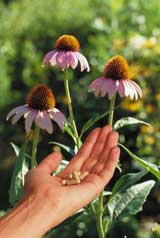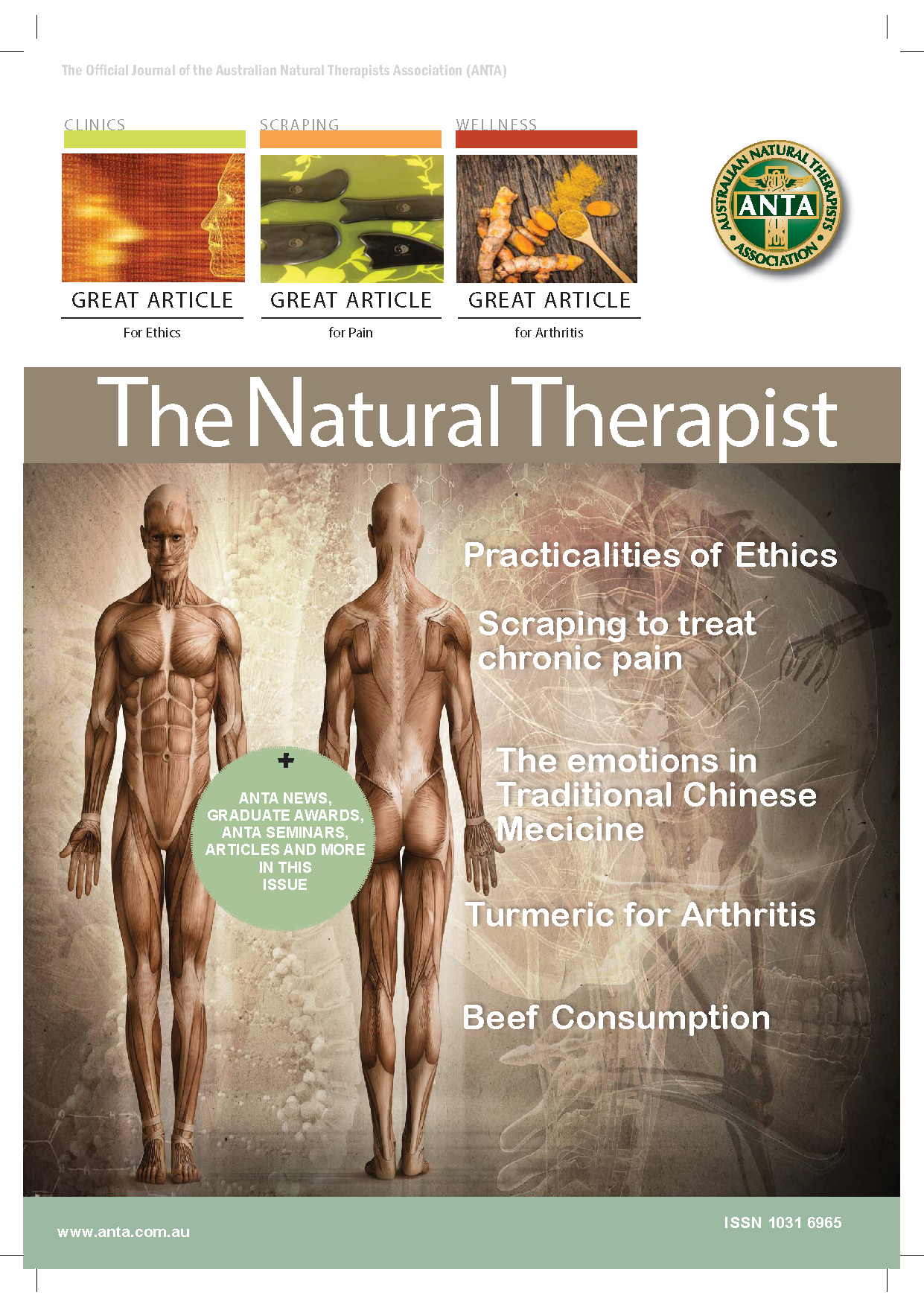Western Herbal Medicine
What is Western Herbal Medicine?
Western herbal medicine involves using plants and plant material to create medicines to help prevent or treat various illnesses. These materials may use some or all parts of a plant, such as flowers, roots, fruits, leaves, and bark.
This modality emphasises the use of European and Native American herbs; however, herbs from other parts of the world are sometimes used as well.
Traditional Western herbal medicine evolved mostly from the ancient Greeks, who were strongly influenced by Egyptian and Middle Eastern civilizations. Western herbal medicine also has roots in the indigenous practices of the British Isles and ancient Roman traditions. Well-known historical physicians including Hippocrates and Galen are thought to have used herbal medicine in their practices. The use of various herbal formulas is one of the oldest and possibly the most widespread form of medicine.
Herbal remedies are used for many suggested purposes, such as improvement or general support of digestive, respiratory, circulatory, immune, endocrine, and nervous system processes. Herbs are also used to purportedly remove waste and toxins from bodily cells or topically to promote healing of the skin.
Herbs of the Western herbal medicine tradition are the subject of increasing interest in the medical community. Research is currently being conducted in the use of medicinal herbs for various medical conditions. For instance, garlic has been researched as a potential treatment for high blood pressure. In some studies, the whole herb is given to a patient, whereas in other studies, isolated active chemicals, or constituents of a plant, may be extracted, purified, and administered to the patient. Herbal constituents may be concentrated to deliver standardised set doses and may also be synthesised in a lab. They may also have their chemical structure changed and patented. This wide variety of herbal formulations used in clinical, in vivo, and in vitro studies is an area of concern for accurate analysis of research and determination of clinical recommendations.
How to gain ANTA Accreditation in Western Herbal Medicine?
Here are a few tips to help you gain accreditation with ANTA in Western Herbal Medicine.
- Review our recognised courses to obtain information on colleges and courses ANTA recognises for accreditation
- Download a Membership Application form, fully complete and post into ANTA
- Ensure you have certified copies of your qualifications and academic records
- Use the applicants checklist within the application to ensure fully completed
ANTA Recognised Western Herbal Medicine Courses
»
New South Wales
-
Australasian College of Natural Therapies
Advanced Diploma of Western Herbal Medicine HLT60107
Bachelor of Health Science (Western Herbal Medicine)
Contact Details
235 Pyrmont St, Pyrmont NSW 2009
Phone: 1300 017 267
Email: info@acnt.edu.au
Web: www.acnt.edu.au
Australasian College of Natural Therapies (ACNT) has been providing quality education in the natural therapies field for over 25 years. The college is centrally located in Surry Hills, approximately 200 meters from Central Station. ACNT is a VETAB and CRICOS approved Registered Training Organisation teaching courses in Naturopathy, Nutrition, Herbal Medicine, Homoeopathy, Massage Therapy, Beauty and Spa Therapy, Fitness and Sport, Reflexology and Kinesiology to both local and overseas students. ACNT is an accredited CIDESCO and ITEC college offering a range of internationally recognised qualifications including CIDESCO Beauty, Spa and Aromatherapy, IFA (International) Aromatherapy, as well as a ITEC Massage, Beauty, Natural Therapies, and Fitness qualifications. In 2007 ACNT joined the Think Education group which has now grown to become the largest private education provider in NSW.
-
Endeavour College of Natural Health (Sydney)
Bachelor of Health Science (Western Herbal Medicine)
Contact Details
Address: 815 George Street, Sydney 2000 NSW
Phone: 02 8204 7700
Email: enquiry@endeavour.edu.au
Web: www.endeavour.edu.au
-
Nature Care College
Bachelor of Herbal Medicine
Advanced Diploma of Western Herbal Medicine HLT60102
Contact Details
Address: 46 Nicholson Street, St Leonards NSW 2065
Phone: 02 9438 3333
Fax: 02 9436 0503
Email: info@naturecare.com.au
Web: www.naturecare.com.au
Established for over 30 years, Nature Care offers degrees in natural medicine, government and industry accredited Professional Training Courses and stimulating life enriching courses, all in a supportive and caring environment. We also offer refresher courses and post-graduate studies, including professional development seminars for industry graduates, which include the latest developments and research within the industry. Study options include full or part-time learning options.
-
University of New England
*Postgraduate courses: Graduate Diploma of Health Science (Herbal Medicine)
*Postgraduate courses: Master of Health Science (Herbal Medicine)
Contact Details
Address: School of Health, University of New England, Armidale NSW 2351
Ph: +61 2 6773 2648
Web: www.une.edu.au
*ANTA Doesn't require undergraduate studies in Natural Therapies as a prerequisite.
-
WEA Hunter Academy of Complementary Health
Advanced Diploma of Western Herbal Medicine HLT60102
Contact Details
Address: 100 Laman Street, Cooks Hill NSW 2300
Web: www.weahunter.com.au
» Queensland
-
Academy of Natural Therapies (TAFE Gold Coast)
Advanced Diploma of Western Herbal Medicine HLT60102
No enrolments are currently being taken for this course.
-
Academy of Safe Therapies
Advanced Diploma of Western Herbal Medicine HLT60102
Contact Details
Address: PO Box 2060, Burleigh Junction QLD 4220
Phone: 07 5522 0404
Fax: 07 5522 0505
Email: academy@safetherapies.com.au
Web: www.ast.edu.au
-
Australian Institute of Applied Sciences (AIAS)
Advanced Diploma of Western Herbal Medicine HLT60107
Contact Details
Address: PO Box 124, Stones Corner QLD 4120
Phone: 07 3394 2344
Fax: 07 3397 6511
Email: admin@aias.com.au
Web: www.aias.com.au
-
Australasian College of Natural Therapies
Advanced Diploma of Western Herbal Medicine HLT60107
Bachelor of Health Science (Western Herbal Medicine)
Contact Details
Address: 90 Bowen Terrace, Fortitude Valley QLD 4006
Phone: 1300 017 267
Email: info@acnt.edu.au
Web: www.acnt.edu.au
-
Australian College of Phytotherapy
Postgraduate courses: Graduate Diploma of Health Science (Herbal Medicine)
Postgraduate courses: Master of Health Science (Herbal Medicine)
Contact Details
Address: PO Box 661, Warwick QLD 4370
Phone: 07 4661 9653
Fax: 07 4667 0107
Email: herbmed@gil.com.au
Web: www.herbaleducation.com.au
The University of New England in association with the Australian College of Phytotherapy offers a Master of Health Science and a Graduate Diploma in Health Science in clinical herbal medicine. Developed by leading Australian herbalist Kerry Bone, this distance education course is designed for herbalists, naturopaths, doctors, chiropractors, pharmacists and other healthcare professionals. Course material is based on cutting edge scientific, medical and herbal knowledge and provides students with the information, skills and capabilities to become competent herbal clinicians. For further information visit our website www.herbaleducation.com.au
-
Endeavour College of Natural Health (Brisbane)
Bachelor of Health Science (Western Herbal Medicine)
Contact Details
Address: Level 2, 269 Wickham Street, Fortitude Valley QLD 4006
Phone: 07 3257 1883
Fax: 07 3257 1889
Email: enquiry@endeavour.edu.au
Web: www.endeavour.edu.au
-
Endeavour College of Natural Health (Gold Coast)
Bachelor of Health Science (Western Herbal Medicine)
Contact Details
Address: 105 Scarborough Street, Southport QLD 4215
Phone: 07 5503 0977
Fax: 07 5503 0988
Email: enquiry@endeavour.edu.au
Web: www.endeavour.edu.au
-
Robynn Morro’s College of Natural Medicine
Advanced Diploma of Western Herbal Medicine HLT60102
Course no longer offered.
-
Sunshine Coast Institute of TAFE
Advanced Diploma of Western Herbal Medicine HLT60102
Contact Details
Address: Windsor Road, Nambour QLD 4560
Phone: 07 5459 3762
Email: scott.strand@det.qld.gov.au
» South Australia
-
Endeavour College of Natural Health (Adelaide)
Bachelor of Health Science (Western Herbal Medicine)
Contact Details
Address: 88 Currie Street, Adelaide SA 5000
Phone: 08 8410 1975
Fax: 08 8410 3338
Email: enquiry@endeavour.edu.au
Web: www.endeavour.edu.au
» Tasmania
-
Tasmanian Polytechnic
Advanced Diploma of Western Herbal Medicine HLT 60102
Formely TAFE - Tasmania. Please note that this information is for past graduates who wish to apply for membership as this course is no longer offered.
» Victoria
-
Australian Institute of Applied Sciences (AIAS)
Advanced Diploma of Western Herbal Medicine
Contact Details
Address: Level 4, 399 Lonsdale Street, Melbourne VIC 3000
Phone: 1300 880 933
Email: admin@aias.com.au
Web: www.aias.com.au
-
Endeavour College of Natural Health (Melbourne)
Bachelor of Health Science (Western Herbal Medicine)
Contact Details
Address: 368 Elizabeth Street, Melbourne VIC 3000
Phone: 03 9662 9911
Fax: 03 9662 9414
Email: enquiry@endeavour.edu.au
Web: www.endeavour.edu.au
-
Southern School of Natural Therapies
Bachelor Degree in Health Sciences (Western Herbal Medicine)
Contact Details
Address: 25 Victoria St, Fitzroy VIC 3065
Phone: 03 9415 3333
Fax: 03 9415 3334
Email: enquiries@ssnt.com.au
Web: http://ssnt.edu.au
» Western Australia
-
Australian Institute of Higher & Further Education (formerly Australian Institute of Holistic Medicine)
Advanced Diploma of Western Herbal Medicine HLT60107
Contact Details
Address: PO Box 3079, Success WA 6964
Phone: 08 9417 3553
Fax: 08 9417 1881
Email: info@aihm.wa.edu.au
Web: www.aihm.wa.edu.au
The Australian Institute of Holistic Medicine is located in a beautiful, tranquil bush setting about 20 minute’s drive from Perth city and Fremantle. The Institute is dedicated to providing the maximum exposure to the fundamentals of Natural Therapies and encouraging the students to incorporate all that they learn in to their lives and to them reaps the benefits. The courses offered by the Institute are not only informational but are considered to be transformational. As such graduates of the Institute are expected to "walk the talk" and become role models before they go forward to both preach and teach the benefits of Natural Therapies to the general public. Through an articulation arrangement with the CSU (Charles Sturt University) students of the AIHM are able to upgrade their Advanced Diploma or Diploma to a Bachelor of Health Science (Complementary Medicine) issued and administered by the CSU.
-
Endeavour College of Natural Health (Perth)
Bachelor of Health Science (Western Herbal Medicine)
Contact Details
Address: Level 1, 170 Wellington Street, East Perth WA 6004
Phone: 08 9225 2900
Fax: 08 9225 2999
Email: enquiry@endeavour.edu.au
Web: www.endeavour.edu.au
-
Paramount College of Natural Medicine
Advanced Diploma of Western Herbal Medicine HLT60102
Bachelor of Health Science (Western Herbal Medicine)
Contact Details
Address: 11/15 Bonner Drive, Malaga W.A. 6090
Phone: 08 9209 3335
Fax: 08 9209 3339
Email: info@paramountcollege.edu.au
Web: www.paramountcollege.edu.au
Paramount College of Natural Medicine has evolved from our desire to enhance the development of richly empowered complementary health practitioners. We offer nationally endorsed qualifications which are recognised Australia wide. The Paramount Experience
- Paramount College is dynamic, with up to date learning practices
- At Paramount College, you will be learning natural medicine and treated like an individual, within a professional environment
- Paramount College's methods of assessment reflect real life; exams do not reflect real life
- Smaller class sizes ensure a personalised, quality learning environment
- Integrated student clinic
- Austudy available to eligible students
- Competitive fee structure
» New Zealand
-
Wellpark College of Natural Therapies
Diploma of Herbal Medicine
Contact Details
Address: 6 Francis Street, Grey Lynn, Auckland, New Zealand
Phone: 09 360 0560
Fax: 09 376 4307
Email: naturopathy@wellpark.co.nz
Web: www.wellpark.co.nz
Requires VETASSESS equivalency to practice in Australia.
ANTA's Scope and Standards of Practice
To view ANTA's commitment to the delivery of quality health care, public safety and promoting informed choices in Western Herbal Medicine read our Scope and Standards of Practice.
Scope and Standards of Practice - Herbal Medicine
Locate an ANTA accredited Western Herbal Medicine Therapist
Click here to find a Western Herbal Medicine Therapist in your area!
Western Herbal Medicine book reviews
Click here to view our Western Herbal Medicine book reviews!
Western Herbal Medicine News
Click here to view Western Herbal Medicine News!




